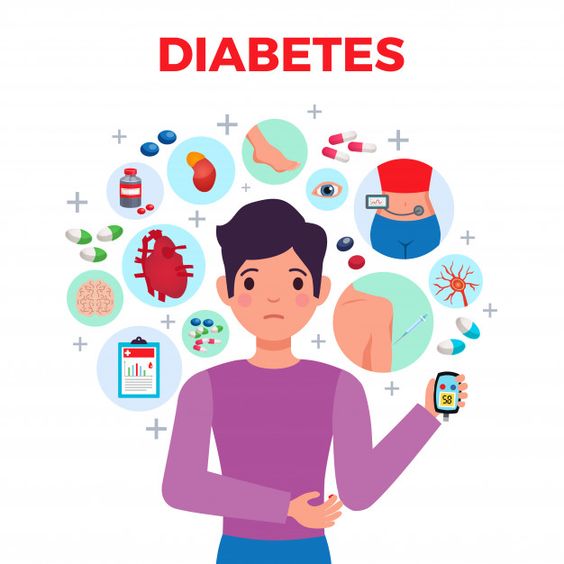
Researchers Suspects children to be Potential Drivers of SARS-CoV-2 Spread in GENERAL Population
August 24, 2020
Blood Type and COVID-19
October 9, 2020Many people experience chronic stress in todays’ world. The peer pressure which one could experience from work, financial pressures, relationships, and other situations could cause chronic stress which could affects a person’s well-being.
Stress is a natural feeling of not being able to cope with specific demands and events. Anything that poses a real threat or perceived challenge or threat to a person’s well-being can cause stress.
However, one should take steps to manage it. Stress could be a motivator and is essential for our survival. It is natural defense mechanism of the body, against predators and dangers.
When humans face challenge or threat, hypothalamus a tiny region at the base of the brain sends signals to adrenal glands located at the top of kidneys to release chemicals into the blood stream which include adrenaline and cortisol. These chemicals prepare individual’s bodily systems to confront danger.
This is referred to as fight-or-flight mechanisms of the body. These mechanisms help the individual to either stay and confront the challenge or get to safety as fast as possible.
Adrenaline increases heart rate, elevates blood pressure and boosts energy supplies.
Cortisol commonly referred to as primary stress hormone (Hormones are chemicals that are secreted directly into the blood which carries them to organs and tissues of the body to exert their functions); increases blood sugar (glucose) levels, enhances brain use of glucose (brain uses glucose as a source of energy) and increases availability of substances that repair tissues.
Cortisol also inhibits functions of the body that would be non-essential or detrimental during fight-or-flight response.
For example, it alters immune system responses, suppresses the digestive system, suppresses reproductive system and also suppresses growth processes. It also affects brain regions that control mood, motivation and fear.
The body’s stress-response mechanisms are self-limiting. Once a perceived threat has passed the levels of cortisol and adrenaline in the blood drops, heart rate and blood pressure return to baseline levels and other systems resume their regular activities.
If an individual has developed a habit of being constantly stressed, or if stressors are always present, the fight-or-flight mechanisms stays turned on, as one constantly feel under attack.
Over exposure to cortisol and other stress chemicals which are released into blood stream as one is stressed, increases risk for developing health issues which may include, headaches, depression, anxiety, heart disease, digestive problems, sleep problems, weight gain, impaired immune function, memory and concentration impairment.
However, normal levels of cortisol are required to regulate many important physiological functions of the body. Most body cells express receptors for cortisol i.e. they need cortisol to function. Some of the important cortisol functions are:
It regulates metabolism (biochemical reactions occurring in the body to generate energy from food).
It can help control blood sugar levels.
It helps reduce inflammation.
It affects salt and water balance and thus helps control blood pressure.
In women, cortisol also supports the developing fetus during pregnancy.
All of these functions make cortisol a crucial hormone to protect overall health and well-being.
Recently scientists at The Ohio State Wexner Medical Centre’s Diabetes and Metabolism Research Centre conducted studies and noted a clear link between stress hormone cortisol and higher blood sugar levels in people suffering through type 2 diabetes. (Type 2 diabetes is a medical condition which can lead to chronically high blood glucose levels. It occurs when body cells fail to respond to hormone insulin, which is secreted by an organ of the body, the pancreas).
During the studies researchers observed that in healthy people cortisol levels in the blood fluctuates naturally throughout the day, spiking in the morning and falling at night. However, in participants with type 2 diabetes, it was observed that cortisol profiles were flatter throughout the day i.e. there were sustained levels of cortisol in the blood throughout the day.
As cortisol increases blood sugar levels, these sustained levels of cortisol make it much more difficult to control blood sugar and the disease. Thus, these participants with type 2 diabetes had higher blood glucose levels.
Scientists claim that previous researches have shown that stress and depression are two major causes of flatter cortisol profile.
They further specified that the relationship of cortisol with glucose levels was only observed in those with type 2 diabetes.
However, researchers believe that the stress hormone likely plays an important role in diabetes prevention, and they are conducting more studies to find connection between cortisol and development of diabetes and cardiovascular disease.
Stress relief is often a forgotten component of diabetes management, it is crucial for patients of type 2 diabetes to learn ways of managing stress which will be very helpful in controlling their blood sugar levels and it will affect their overall health.
REFERENCE:
Study links stress hormone with higher blood sugar in Type 2 diabetes
https://www.sciencedaily.com/releases/2020/07/200713104404.htm






